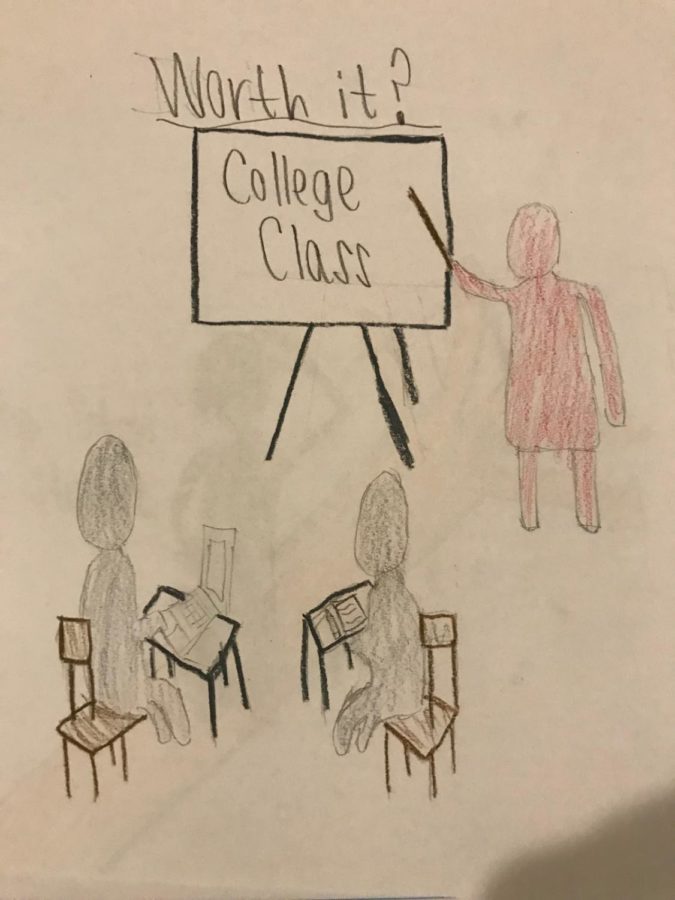Is Taking College Classes Worth It for High Schoolers?
Picture by Pranesh Kumar
November 12, 2018
The competition for getting into a top college has made high schoolers resort to a variety of methods in order to gain an advantage. Especially at Quartz Hill High School, there is a large group of students in every grade level that aims to get the number one rank. By taking numerous AP, IB, and online classes, students aim to surpass one another in grades and GPA. During the summer or even during the school year, some students choose to enroll in classes at community colleges such as AVC. College classes are a great way to learn a new subject and get ahead in academics; however, a large portion of kids take them only because each class can offer up to four honors credits. For this specific reason, college classes should only be taken to a certain extent.
Honors credits, AP credits, and IB credits are all used to boost one’s weighted GPA. Community college classes may only offer three or four credits, but each class still provides almost as much credit as one semester of a high school class. Therefore, this is advantageous for any student looking to boost their GPA. However, classes can cost as much as $400 when factoring in the registration fee and the cost of supplies.
Furthermore, high school students who take college classes may feel that they are gaining an advantage over other students academically. College classes offer unique subjects to choose from and the professors who teach the subjects are usually more qualified than many high school teachers. Furthermore, community colleges have classes that many high schools do not cover or may not teach in depth. These subjects include astronomy, forensics, and even world languages other than Spanish or French. The curriculum for community college classes is also just as challenging or, often times, more challenging than honors, AP, and IB classes offered in high school. For any student seeking these benefits and the possibility of honors credits, these classes may be useful.
However, while college classes seem tempting, there are also some negatives that should be taken into consideration. For one, the hefty price of each college class may not be ideal for students. High school classes can be taken without the worry of having to pay a fee and there are still many challenging classes that are offered. Additionally, AP and IB classes, in particular, are designed so that they align with the most up-to-date college curriculum, which is why they can be taken to earn college credits. Another factor to consider is that most of the students taking college classes will be college students or adults. Lastly, high schools allow students to collaborate with others of the same age group, which is an important life skill.
Many community colleges offer classes during an evening session which lasts from 7:00 to 10:00 pm. This timing makes it convenient for students who may have sports or other extracurriculars after school. However, considering that they are every weekday during the fall semester and every weekday except for Friday in the summer, the workload should be considered a precaution. With so much work and so little time to do homework, it may be hard to keep good grades in one’s classes. Students may often burn themselves out by taking so many classes and may suffer in high school as a result. Universities do not want students to take too many courses. Instead, they prefer students that take specific challenging classes and do extracurriculars related to the subject. In fact, this approach is usually more beneficial.
As someone who has taken a community college class, I recommend that you take classes that interest you rather than ones simply for GPA. The experience of taking a college class is useful for any high school student. However, considering the workload, it is better to take only a few and reserve them for the summer semester when there is no work from high school to worry about. Also, consider whether the cost of enrollment is worth it before signing up. Ultimately, the decision is based on whether the benefits are truly worth the demand.




